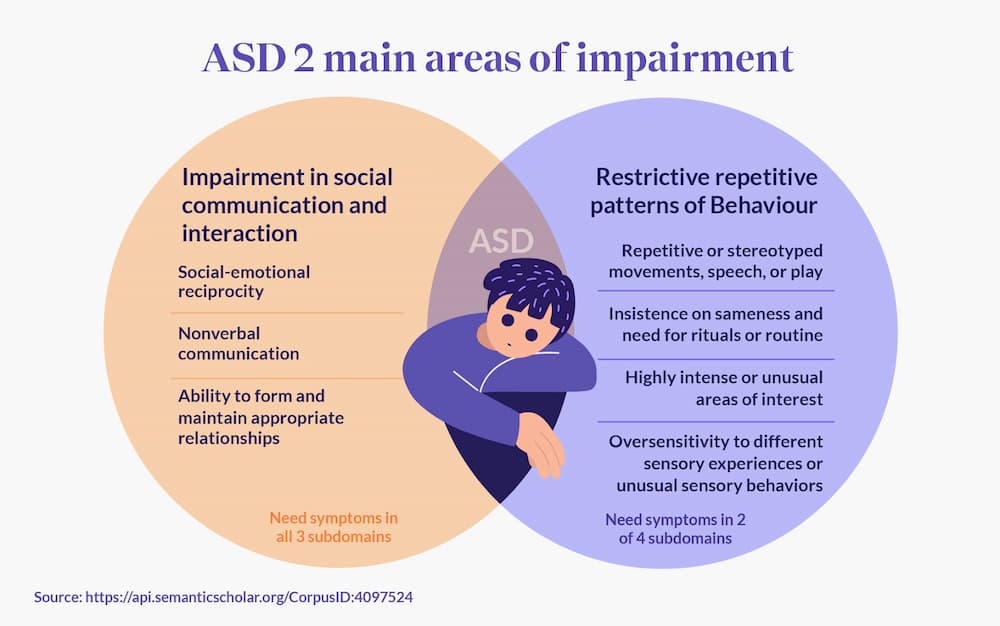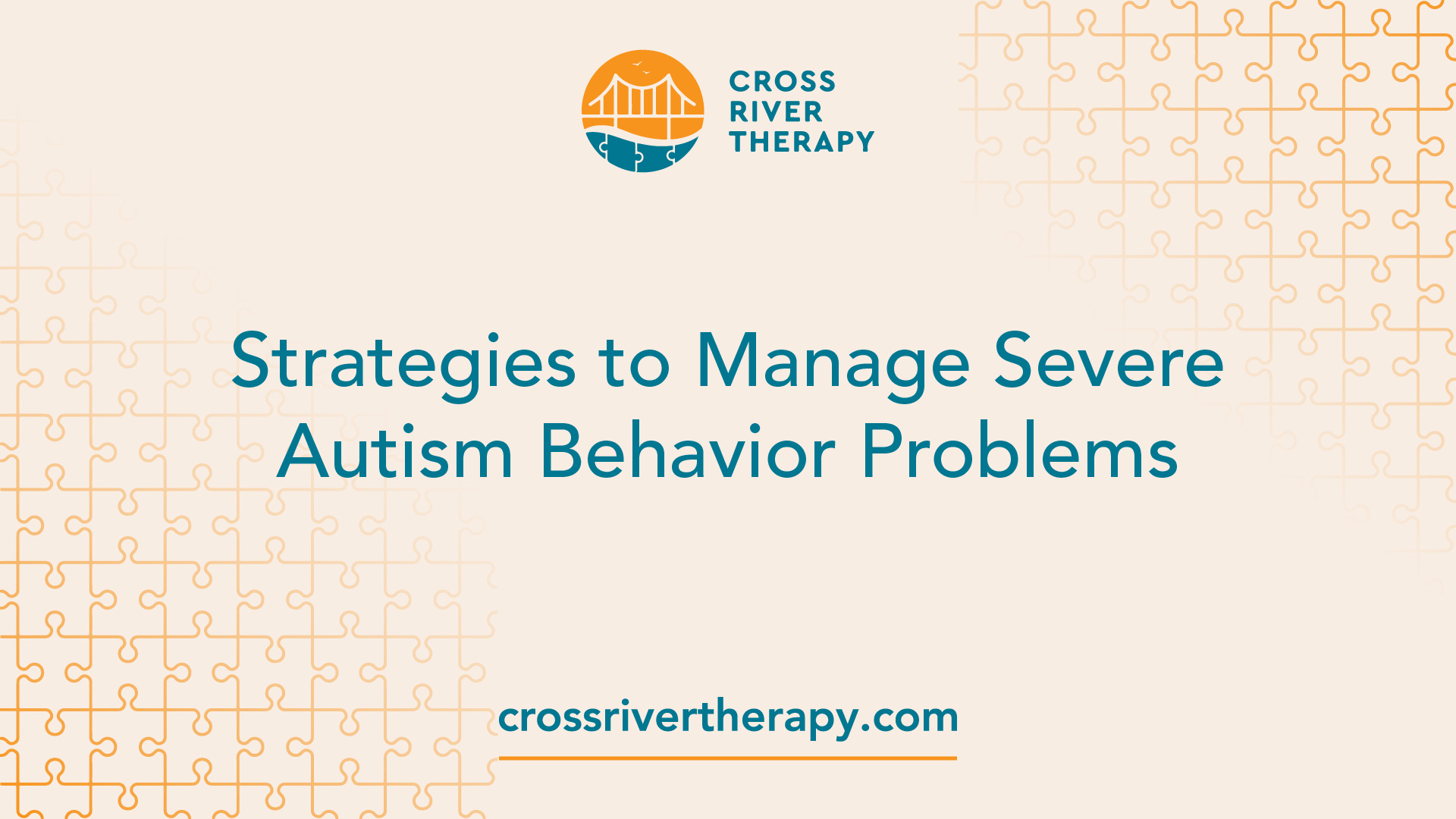What’s involved when working with an Autism Behavioral Therapy approach specialist
What’s involved when working with an Autism Behavioral Therapy approach specialist
Blog Article
Key Symptoms And Signs to Identify in Individuals With Behavior Autism
When you come across somebody with behavioral autism, recognizing key signs and signs and symptoms is crucial. In addition, sensory level of sensitivities can lead to frustrating experiences.
Challenges in Social Communications
When you engage with somebody on the autism spectrum, you may notice they have a hard time with social cues and interaction. These difficulties can make social communications feel frustrating for them.
When they do engage, they could chat about their interests in excellent information without observing if you're interested. Comprehending these obstacles can help you approach communications with compassion and patience, cultivating a much more comfy setting for both of you.
Problem With Verbal and Non-Verbal Interaction

Acknowledging these indications is important, as it aids you far better support and engage with individuals on the autism spectrum. By comprehending their communication challenges, you can foster extra purposeful connections and offer an extra encouraging setting.
Recurring Habits and Routines
Communication difficulties typically come with other indications of autism, such as repeated behaviors and a strong preference for regimens. You may observe that individuals with autism usually take part in certain, repetitive activities, like hand-flapping, shaking, or duplicating phrases. These habits can supply comfort and a feeling of control in an often overwhelming world.
Routines are equally important; lots of individuals flourish when they adhere to a structured schedule. You might discover that adjustments to these routines can lead to considerable distress. For instance, if they have a daily routine of consuming morning meal at a certain time or complying with a specific course to college, any kind of disturbance can cause anxiousness.
Identifying these patterns aids you comprehend their habits and provide assistance. By fitting their demand for regular and enabling recurring activities, you can create a more comfy setting that reduces their difficulties.
Sensory Sensitivities

Common Sensory Triggers
Sensory level of sensitivities can considerably affect everyday life for individuals with autism, as specific stimulations commonly trigger frustrating reactions. Typical sensory triggers consist of loud noises, bright lights, and solid smells. You could notice that abrupt noises, like sirens or alarm systems, cause anxiety or distress. Fluorescent illumination in stores can really feel unpleasant and extreme. Structures can also play a considerable role; harsh textiles or specific food appearances may be excruciating for you. Furthermore, crowded locations can overwhelm your senses, making it hard to loosen up or concentrate. Comprehending these triggers can aid you handle your atmosphere much better. By understanding what impacts you, you can take steps to decrease pain and enhance your everyday experiences.
Behavior Reactions Clarified
Comprehending your behavioral responses to sensory sensitivities is necessary, as they commonly disclose how you engage with the world. You may see that specific sounds, lights, or appearances overwhelm you, causing anxiousness or pain. When confronted with these stimuli, you could take out, cover your ears, and even respond strongly. These actions aren't simply traits; they're your way of dealing with overstimulation. You may also find on your own looking for certain sensory experiences, like deep stress or quiet atmospheres, to assist ground yourself. Recognizing these patterns assists you comprehend your needs far better and can guide exactly how you connect them to others. By recognizing your sensory level of sensitivities, you can function in the direction of producing an atmosphere that really feels extra comfortable and workable for you.
Coping Techniques Summary
Recognizing your sensory sensitivities is just the first action; now it's time to explore coping methods that can assist you handle those experiences successfully. Beginning by developing a sensory toolkit customized to your requirements. Establishing a structured regimen can additionally give predictability, decreasing anxiety around sensory overload.
Restricted Passions and Emphasis
While several individuals develop a wide variety of interests, those with autism usually show restricted passions and an extreme emphasis on certain topics. You might discover that a person with autism can invest hours delving into their favorite subject, whether it's a certain sort of train, a particular movie, or find more information a scientific concept. This extreme focus isn't just a pastime; it can come to be a central part of their identity and social communications.
You might locate that conversations revolve around these interests, and they might have a hard time to involve in more comprehensive subjects. By comprehending and acknowledging these limited interests, you can cultivate a supportive setting where they feel valued and understood, permitting for more meaningful links and interactions.
Psychological Law Troubles
People with autism frequently face obstacles in emotional law, which can be affected by their intense concentrate on specific interests. You could notice that when a person is deeply participated in a favored activity, they can experience strong emotions, whether excitement or frustration. This intensity in some cases makes it difficult for them to shift gears or manage their sensations when points don't go as prepared.

Irregularity in Developing Milestones
When it comes to developmental turning points, you'll observe that individuals with autism commonly reveal a large array of irregularity. You could see a kid succeed in language skills but battle with social communications.
It's important to identify that each person's trip is one-of-a-kind. Some might create complicated skills early, only to encounter obstacles later. Others may take longer to accomplish fundamental turning points however then thrive in details locations. Observing these patterns can help you comprehend their staminas and needs much better.
Often Asked Concerns
How Is Autism Detected in Kid and Adults?
To detect autism in kids and adults, experts evaluate actions, communication abilities, and social interactions. If an individual satisfies the criteria for autism range disorder., they often utilize standardized examinations, meetings, and observations to determine.
Are There Different Kinds of Autism Spectrum Disorders?
Yes, there are various kinds of autism spectrum disorders, consisting of Asperger's disorder and pervasive developing disorder-not otherwise specified. Each kind varies in intensity and characteristics, so understanding these distinctions can assist you better assistance people with autism.
What Therapies Work for Individuals With Autism?
When thinking about effective treatments for people with autism, you'll discover choices like Applied Behavior Evaluation, speech therapy, and work-related treatment. Each approach can assist boost communication, social abilities, and daily functioning customized to specific demands.
Can Individuals With Autism Lead Independent Lives?
Yes, individuals with autism can lead independent lives. With the appropriate support, skills training, and resources, you can assist them create self-sufficiency, manage everyday jobs, and thrive in various atmospheres, promoting their freedom.
How Can Households Assistance Enjoyed Ones With Autism?
You can sustain your enjoyed ones with autism by creating a structured atmosphere, motivating their passions, exercising perseverance, cultivating interaction, and promoting social skills. Celebrate their achievements, Home Page no matter exactly how little, and develop a supportive neighborhood.
Although several people on the autism range can understand and use language, they typically deal with considerable difficulties with both non-verbal and spoken interaction. Identifying these signs is vital, as it assists you much better support and engage with people on the autism spectrum. You might see that people with autism usually involve in certain, repetitive activities, like hand-flapping, rocking, or repeating expressions.Sensory level of sensitivities can substantially affect everyday life for individuals with autism, as certain stimulations usually activate overwhelming reactions.When it comes to developing landmarks, you'll observe that individuals with autism often reveal a large variety of irregularity.
Report this page